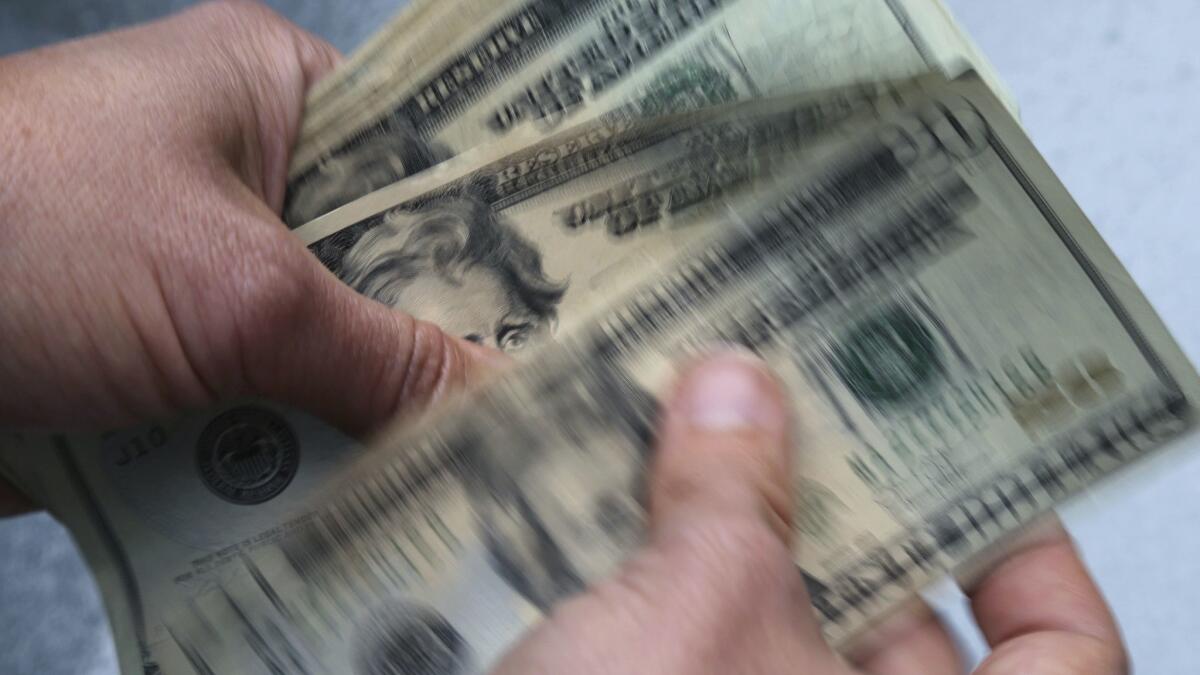Most economists expect a U.S. recession by 2021, survey shows

- Share via
More than three-quarters of business economists expect the United States to enter a recession by the end of 2021, though a majority still estimates the Federal Reserve will keep raising interest rates this year.
Ten percent believe a recession will begin this year, 42% project one next year, and 25% expect a contraction starting in 2021, according to a semiannual National Assn. for Business Economics survey released Monday. The rest expect a recession later than 2021 or expressed no opinion, the poll of nearly 300 members conducted Jan. 30 to Feb. 8 showed.
The projections come ahead of the Commerce Department’s release this week of the advance reading for fourth-quarter gross domestic product, which was delayed by the partial shutdown of the U.S. government. Economists surveyed by Bloomberg projected as of Friday that growth cooled to a 2.5% annualized rate in the final months of 2018 from 3.4% in the third quarter.
Association members were divided on the effect of the Fed’s balance sheet normalization process. Asked about the effect of the tightening on short-term funding rates, one-fifth said they saw no effect, one-fifth said it would raise rates by 25 basis points, and one-fifth said rates would rise 50 basis points or more. The remaining respondents said they didn’t know or didn’t express an opinion.
“There is a schism between what the NABE panel and the markets think about the Fed’s rate path and the shrinking of its balance sheet,” said Megan Greene, chief economist at Manulife Asset Management and chair of the survey. “Markets are pricing in no more interest rate hikes in 2019, whereas a majority of the NABE panel expects one or two rate hikes.”
A plurality of 23% expected the Fed to raise the main rate 50 basis points to 3% before beginning to cut rates. Eleven percent said the next rate move would be an easing.
President Trump’s trade policies remained a concern for most of the panelists. Thirty-six percent said the existing tariffs, if they remain in place, would reduce 2019 gross domestic product growth by 25 basis points, while 26% saw a drag of 50 basis points and 15% of panelists expected the reduction to exceed 50 basis points.
Economists also expected the tariffs to boost inflation this year.
More to Read
Inside the business of entertainment
The Wide Shot brings you news, analysis and insights on everything from streaming wars to production — and what it all means for the future.
You may occasionally receive promotional content from the Los Angeles Times.









